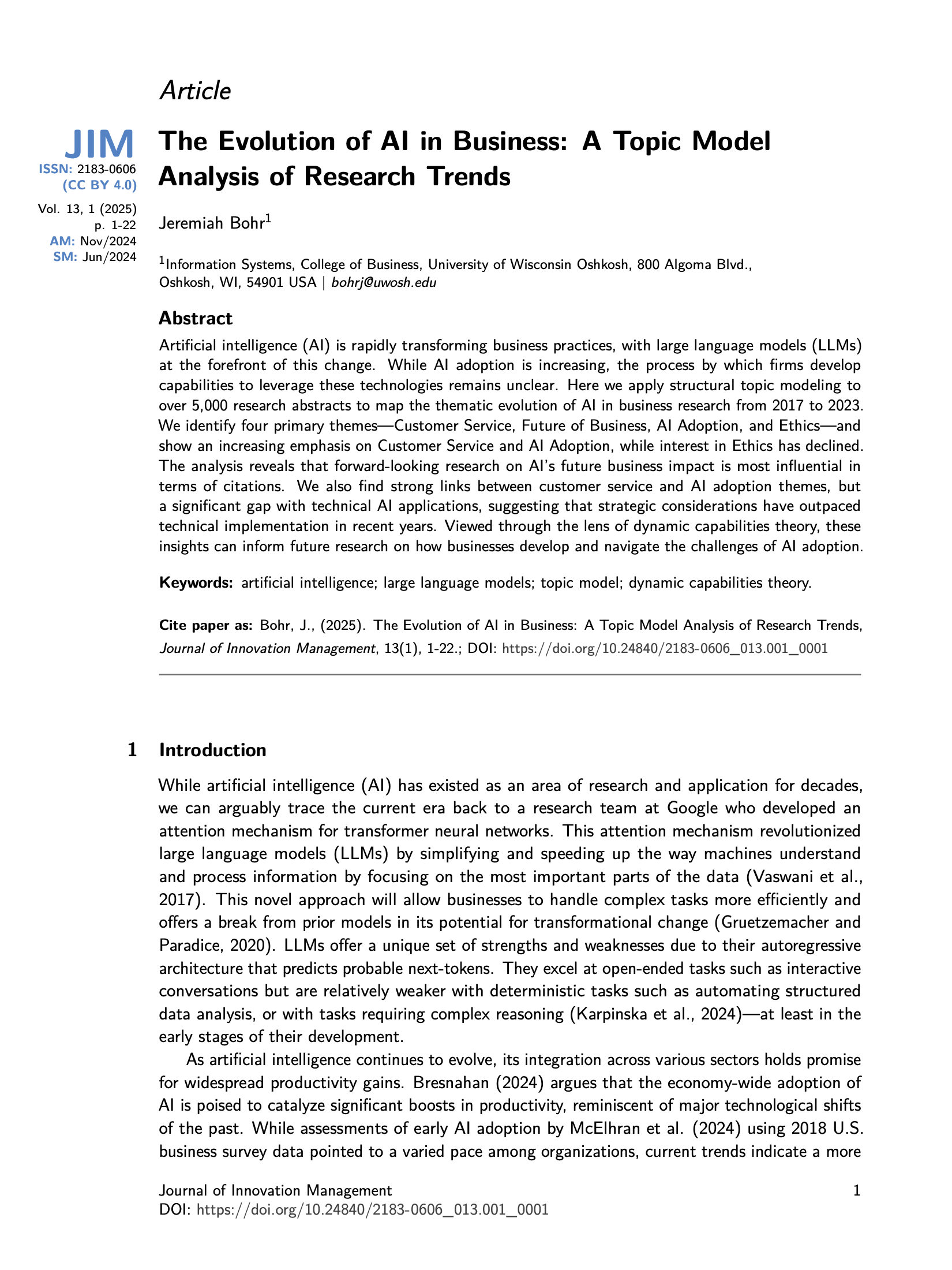The Evolution of AI in Business: A Topic Model Analysis of Research Trends
Main Article Content
Abstract
Artificial intelligence (AI) is rapidly transforming business practices, with large language models (LLMs) at the forefront of this change. While AI adoption is increasing, the process by which firms develop capabilities to leverage these technologies remains unclear. Here we apply structural topic modeling to over 5,000 research abstracts to map the thematic evolution of AI in business research from 2017 to 2023. We identify four primary themes—Customer Service, Future of Business, AI Adoption, and Ethics—and show an increasing emphasis on Customer Service and AI Adoption, while interest in Ethics has declined. The analysis reveals that forward-looking research on AI’s future business impact is most influential in terms of citations. We also find strong links between customer service and AI adoption themes, but a significant gap with technical AI applications, suggesting that strategic considerations have outpaced technical implementation in recent years. Viewed through the lens of dynamic capabilities theory, these insights can inform future research on how businesses develop and navigate the challenges of AI adoption.
Article Details
Authors who publish with this journal agree to the following terms:
- Authors retain copyright and grant the journal right of first publication with the work simultaneously licensed under a Creative Commons Attribution License that allows others to share the work with an acknowledgement of the work's authorship and initial publication in this journal.
- Authors are able to enter into separate, additional contractual arrangements for the non-exclusive distribution of the journal's published version of the work (e.g., post it to an institutional repository or publish it in a book), with an acknowledgement of its initial publication in this journal.
- Authors are permitted and encouraged to post their work online (e.g., in institutional repositories or on their website) prior to and during the submission process, as it can lead to productive exchanges, as well as earlier and greater citation of published work (See The Effect of Open Access).

